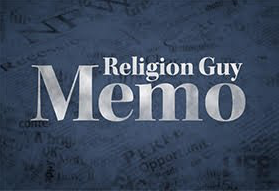Try to imagine, say, U.S. President William Howard Taft, who was a Unitarian, involved with choosing bishops who rule the Episcopal Church, or President Joseph Biden, a Catholic, participating in the selection of bishops in the United Methodist Church.
After the historically brief leadership of Britain's Liz Truss, Conservative Party members of Parliament this week agreed on Rishi Sunak to succeed her as prime minister at a moment of severe economic and political turmoil.
Despite sporadic calls for a change in the system, this Hindu believer will have the unique task of proposing each new Church of England bishop for formal action by King Charles III, the church’s Supreme Governour and “Defender of the Faith.” Then again will that be “Defender of Faith” this time around?
The Sunak religious anomaly provides the media a sidebar to the astonishing ascent of this Anglo-Indian as the first “person of color” and first person from ethnic minorities to lead the British government. He’s also the first prime minister who is not at least nominally a Christian.
The Times of India reports Sunak has called himself a “proud Hindu” and regularly attends the temple in his hometown of Southampton. He has sworn his oath of office on the Bhagavad Gita rather than the Bible.
By coincidence, Sunak’s triumph occurred on Diwali, the annual festival of lights celebration when Hindus invoke the goddess Lakshmi for prosperity. The Times article depicts this 42-year-old’s remarkably prosperous corporate career and rapid political rise.
On this side of the Atlantic, the U.S. has “separation of church and state” and a wholly independent branch of Anglicanism, the Episcopal Church, which elects its bishops at conventions of clergy and lay delegates from the diocese’s parishes. By contrast, the mother church in England involves the monarchy and politicians in a system last amended in 2013 that has elements that were codified by King John of Magna Carta fame in A.D. 1214.
In theory, Sunak could weigh in privately on bishop candidates but his official exercise of ecclesiastical power will be merely nominal (although in 1987 Margaret Thatcher famously barred Jim Thompson as Birmingham’s bishop, presumably over his liberal views). The key operative will be Sunak’s staff Appointments Secretary Jonathan Hellewell.
Hellewell holds a publicly advertised civil service post. He was a lame-duck appointee of Boris Johnson days after his July announcement that he would resign as prime minister. Hellewell had been the Faith Advisor to previous prime ministers and ran the Archbishop of Canterbury’s personal charity. He will work in tandem with Lambeth Palace veteran Stephen Knott, the new appointments secretary to the Archbishops of Canterbury and of York.
Church and government officialdom are part of the process because a bishop is a leader not only of his diocese but of the “established” national church as a whole, and 26 of the bishops serve in Parliament ex officio as members of the House of Lords. Regulations for nominations are laid out in this 36-page church text (.pdf), but here’s a summary of major steps.
When a vacancy occurs, the Church of England invites the public to submit names of candidates to the two appointments secretaries (for prime minister and archbishops) and in turn to the central decision-making body, the Crown Nominations Commission (CNC). As the diocese writes up its situation and needs, the two secretaries do the same after conferring with local church and societal representatives.
The diocese’s standing Vacancy in See Committee names six members to serve on the CNC. At least three of them must be lay members and male/female, urban/rural and ethnic minority balances are considered.
The other CNC members are the two archbishops, three priests and three lay delegates as chosen by the national church’s General Synod, plus the two appointments secretaries as non-voting members. If Archbishop of Canterbury Justin Welby steps down, Sunak would directly appoint “an actual communicant lay member” of the church to preside at CNC meetings. Strict confidentiality is maintained and the six diocesan representatives do not refer matters back to their local colleagues.
After investigation, paperwork and interviews with the finalists, usually four in number, the CNC by two-thirds majority of a secret ballot elects two of them and then in a second ballot lists them in order of preference. (The second-place finalist is available if the first is unable to accept office.) The area archbishop submits the winner to Sunak who sets up a meeting of the first-place choice with his archbishop and Hellewell.
If he (she) accepts, Sunak submits the name to King Charles, who then nominates the appointee to the local diocese’s clergy college and the area archbishop for the official confirmation. The monarch’s choice is never to be rejected. If the winner is not yet a bishop, ordination to the hierarchy occurs before ritual homage to King Charles and installation in office
———
A separate note for journalists: Last week the U.S. Supreme Court set Monday, December 5, for oral arguments in the potentially significant 303 Creative v. Elenis lawsuit by a Colorado Web designer who in conscience does not create materials that promote same-sex weddings on grounds of free speech. Background here.
FIRST IMAGE: Screen grab from Sky News report on the selection of the new prime minister.


